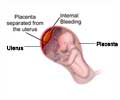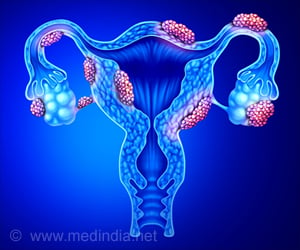Two novel biomarkers FKBPL and CD44, help in diagnosing cases of late-onset preeclampsia, between the second and third trimester, from 34 weeks of pregnancy. This period currently lacks reliable biomarkers.

‘Novel biomarkers help to detect irregular placenta or maternal vascular function, that areunderlying causes of preeclampsia. This will also help in early diagnosis and prevention of severe preeclampsia and its complications including death.’
Read More..




The discovery of two novel biomarkers, called FKBPL and CD44, has the potential to change the way the condition is managed according to research published in the Journal of Clinical Endocrinology and Metabolism. Preeclampsia can cause high blood pressure and organ failure in mothers and lead to preterm births and even stillbirth.Read More..
Senior author, Dr Lana McClements from the University of Technology Sydney, said the biomarkers can be used to diagnose and assess the risk of getting preeclampsia in both early and late pregnancy, "in women who otherwise appear healthy".
"There are two main types of preeclampsia: early-onset preeclampsia diagnosed before 34 weeks of a pregnancy and late-onset preeclampsia diagnosed from 34 weeks onwards," Dr McClements said.
"The vast majority of the current screening and monitoring strategies are focused on early-onset preeclampsia, which comprises only 10-15% of all preeclampsia cases, whereas late preeclampsia has been largely neglected," she said.
The researchers say the two biomarkers are particularly useful for diagnosing cases of late-onset preeclampsia, between the second and third trimester, a period that currently lacks reliable biomarkers.
Advertisement
The research also has potential to enhance the development of therapeutics to treat preeclampsia because the increase in one of the biomarkers, FKBPL, can be inhibited by mesenchymal stem cells potentially stopping the development of preeclampsia.
Advertisement
Source-Eurekalert










